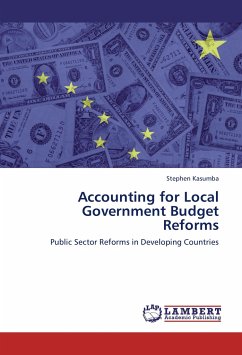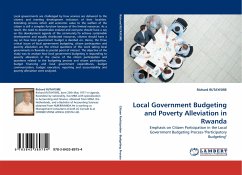This book critically examines the macro dynamics and micro processes involved in the adoption and implementation of budget reforms in local governments in Uganda. It reveals the coercive role of supranational agencies, supplemented by normative processes of local elites and the strategic imitations of the nation-state of Uganda, in providing the demand and supply of new budgetary practices in local governments in Uganda. It provides useful insights into the extensions of the neo-institutional sociology theory. The implementation of the new budgetary practices in local governments in Uganda were affected by factors like, power relations and mistrust between various stakeholders in the local government structure; varying knowledge and skills of the budget reforms; corruption and rent-seeking tendencies of various actors.








